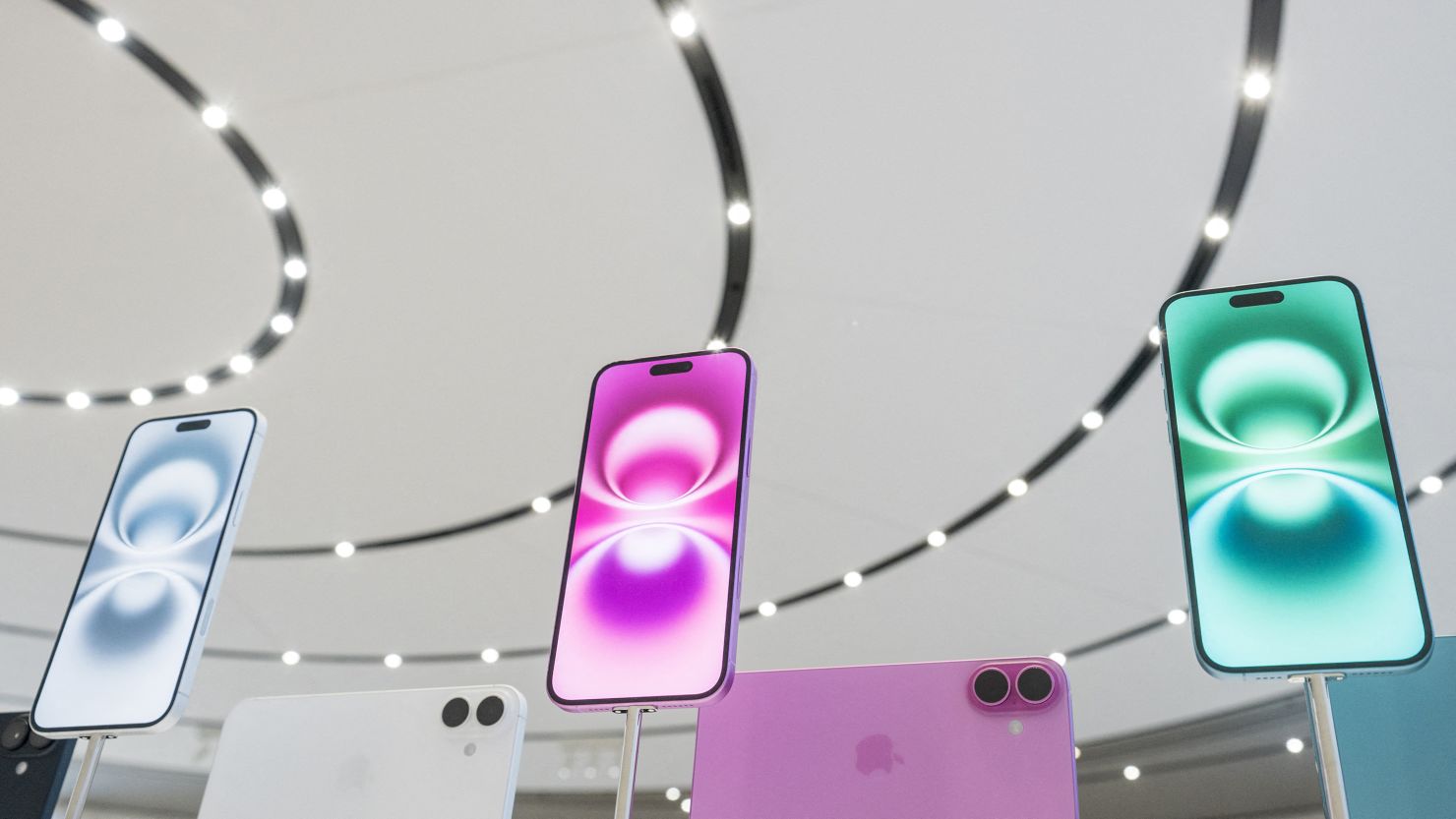During the recent unveiling of the new device, Apple CEO Tim Cook expressed his excitement about how the company’s Apple Intelligence AI tools will significantly enhance the performance of the iPhone 16, describing it as a way to “supercharge” the device. Thursday marked the debut of the impact Apple’s artificial intelligence technology has had on iPhone sales worldwide. In September, iPhone sales slightly exceeded analyst predictions for the three-month period, as indicated by the company’s latest data release on Thursday. According to Apple’s earnings report released after market close, iPhone sales saw a growth of over 5. 5% compared to the previous year, reaching $46. 2 billion. This is significant because Apple’s third quarter earnings report covers the sales data for just over two weeks following the opening of preorders for iPhone 16 on September 13. Devices were officially introduced to shelves on September 20. Although just a small portion of the iPhone 16’s overall sales throughout its lifespan, this initial information offers valuable insights into the demand for the device. Apple has been anticipating a turnaround in sales after a prolonged period of low performance. Apple experienced a decrease in its total revenue for four consecutive quarters last year, mainly due to reduced iPhone sales and ongoing economic instability. Following several unsuccessful attempts to provide consumers with a compelling incentive to upgrade, a number of analysts speculate that the introduction of Apple Intelligence, a software enhancement incorporating artificial intelligence capabilities across the iPhone 16, could potentially trigger a significant surge in sales – a so-called “super cycle” – that the company is eagerly anticipating. In the third quarter, Apple’s iPhone sales included purchases of older models from the same period, while also showing a slight increase in sales thanks to the iPhone 16. During the same quarter last year, iPhone sales experienced a growth of approximately 2. 8% compared to the year before, coinciding with the launch of the iPhone 15. The company’s total sales rose by 6% year-over-year to reach $94. 9 billion, mainly attributed to the increased iPhone sales, which surpassed analysts’ predictions. However, profits experienced a decline of 35% compared to the same quarter of the previous year. During Thursday’s earnings call, Cook expressed that the Apple Intelligence update has already captivated consumers. Cook mentioned that the adoption rate of iOS 18. 1 is double that of iOS 17. 1. That clearly indicates a certain level of interest that exists. Apple shares, represented by the ticker symbol AAPL, experienced a slight decrease of approximately 1% during after-hours trading subsequent to the release of the report. The outcomes have been revealed following this week’s launch by Apple of the initial Apple Intelligence features for the iPhone 16, as well as the iPhone 15 Pro models. These new features consist of fresh writing tools and the capacity to record, transcribe, and condense calls. This implies that individuals who purchased the iPhone 16 during its initial month of availability only gained access to those AI capabilities fairly recently. The gradual release of fresh capabilities and features – additional Apple Intelligence features anticipated to be introduced with iOS 18. 2 in December – might suggest that Apple enthusiasts did not feel a pressing need to rush into upgrading to the iPhone 16. Before Thursday’s report, the attention of Wall Street investors was particularly drawn to the “initial signs of the iPhone 16 cycle performance,” along with the company’s sales projections for the fourth quarter, as noted by CFRA Research analyst Angelo Zino in a research memo released prior to the report. Cook mentioned on Thursday that Apple Intelligence is establishing a new benchmark for privacy in the realm of AI and is enhancing our range as we gear up for the holiday season. Investors were keeping a close eye on sales numbers in China, a significant and crucial market for Apple. Earlier this year, Apple reduced prices in China due to fierce competition from local competitors. Analysts are optimistic that the iPhone 16 could ignite a recovery, despite encountering challenges in introducing Apple Intelligence features in that market. Sales in China during the third quarter remained almost the same as last year, reaching slightly over $15 billion. However, the results fell short of analysts’ expectations of $16. 1 billion, as per Retinitis consensus estimates. Before the report, many analysts conveyed that they were not overly concerned about the September sales figures being lackluster. The upcoming holiday quarter remains crucial for Apple, as it typically holds the utmost significance among the company’s financial quarters. In a recent investor note, Dan Ives, an analyst at Wed bush, mentioned his belief that approximately 300 million iPhones worldwide have not received upgrades in over four years. He also expressed optimism for a significant holiday season ahead. After the report released on Thursday, E-marketer analyst Jacob Bourne mentioned that the gradual launch of Apple Intelligence might slow down the momentum of the device upgrade cycle. Nevertheless, he highlighted that Apple is in a strong position for the holiday season, thanks to the solid growth in services revenue and the high demand for the iPhone 16.






